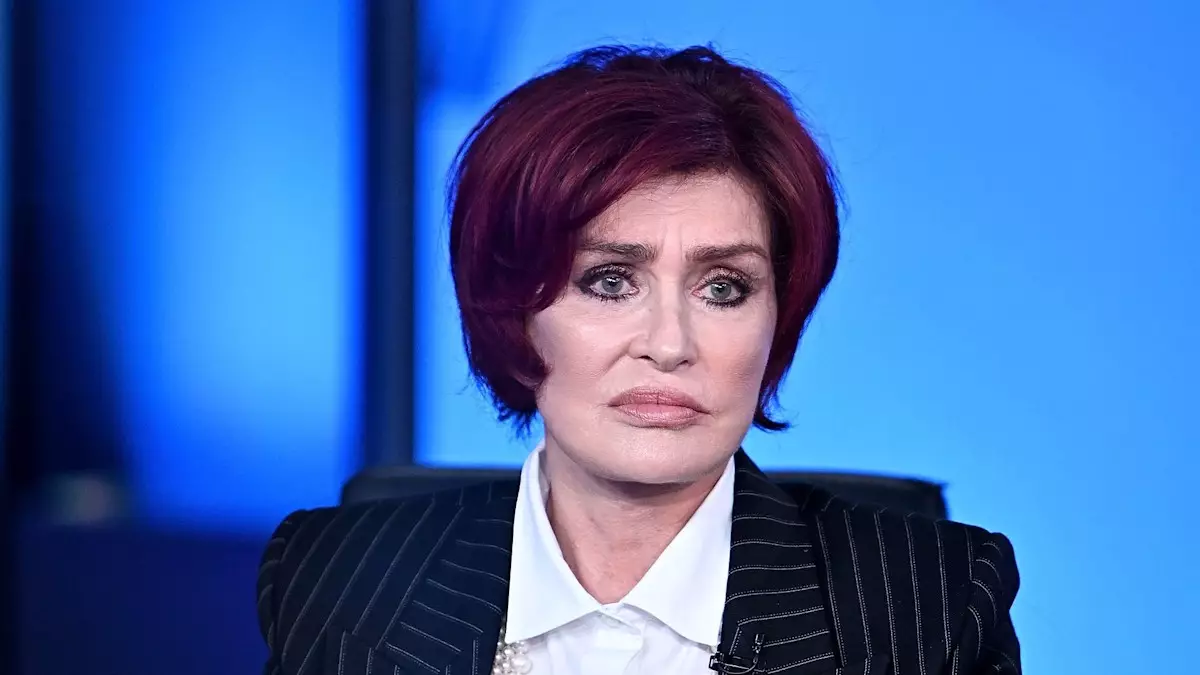Sharon Osbourne’s recent tribute to Liam Payne, the former One Direction star, has brought to light the emotional toll and formidable pressures that accompany sudden fame. In the wake of Payne’s untimely passing, Osbourne’s sentiments emphasize how the music industry often overlooks the vulnerabilities of young artists thrust into stardom at an early age. Reflecting back on Payne’s journey from a young hopeful to a global icon, one can only ponder who truly stood beside him during his most challenging moments.
At 16, Liam Payne was a mere child navigating the complexities of the entertainment world when he participated in the UK’s The X Factor in 2010. He joined forces with Harry Styles, Niall Horan, Zayn Malik, and Louis Tomlinson, forming the phenomenon known as One Direction. Although they finished third that season, the band’s trajectory skyrocketed into a realm of unparalleled success. The rapid ascent that followed was nothing short of overwhelming, bringing with it an array of challenges that left a significant mark on Payne’s mental health.
Sharon’s poignant remarks resonate deeply as she articulated a sense of collective failure from the industry that should have nurtured rather than neglected these budding stars. “Where was this industry when you needed them?” she asks, encapsulating the harsh reality of an industry built on the dreams of youth but seemingly devoid of the mechanisms required for genuine support and protection. It is a valid point to reflect on: the system that promotes these stars often lacks the infrastructure to care for their wellbeing.
Once heralded as one of the world’s most successful boy bands, One Direction’s initial euphoria was severely undercut by the pressures that accompanied their fame. Behind the bright lights and chart-topping hits lay a darker narrative of struggle, pain, and substance abuse. Payne, like many young celebrities, found himself caught in a whirlwind. The support systems that should have been in place were, at best, inadequate and, at worst, nonexistent.
Liam Payne openly discussed his challenges with alcoholism, revealing that even at the pinnacle of One Direction’s success, he was grappling with addiction. His admission during an interview on The Diary of a CEO podcast brought attention to the often-hidden struggles of those in the spotlight. The sincerity of his words struck a chord with many, illustrating that even the most glamorous lives can be laden with difficult battles.
Despite trying to overcome his addiction—most notably celebrated during a heartfelt YouTube announcement that revealed he had achieved six months of sobriety—his journey was riddled with ups and downs. The harsh reality is that fame can sometimes exacerbate existing issues rather than alleviate them. While his moments of clarity offered a glimpse of hope, the tragic news of his passing has sparked a renewed discussion about the responsibilities of the entertainment industry.
As Sharon Osbourne mourned the loss of her “friend,” she inadvertently called forth a conversation that necessitates urgent attention: how can the music and entertainment industry better protect its young talent? It is critical for industry insiders and gatekeepers to establish mechanisms of support that address mental health, addiction, and the unique pressures faced by young artists.
In reflecting on Payne’s life and career, it becomes evident that the culture surrounding fame must evolve. There needs to be robust advocacy for well-being, coupled with mentorship programs that equip young talents with the tools needed to navigate the demands of fame. The industry bears the responsibility of not just promoting artists but also safeguarding their mental health, well-being, and overall development as individuals.
Liam Payne’s life serves as a tragic reminder of the consequences that can arise from fame if left unchecked. As fans mourn his loss and reflect on his journey, it is imperative to channel this sorrow into actionable change. The hope is that by honoring his legacy, the music industry will take a long, introspective look at how it treats its stars and strive to create an environment that fosters not only success but, more importantly, health and happiness. In doing so, they can ensure that the tragedies of the past are not repeated, creating a safer future for aspiring artists.

